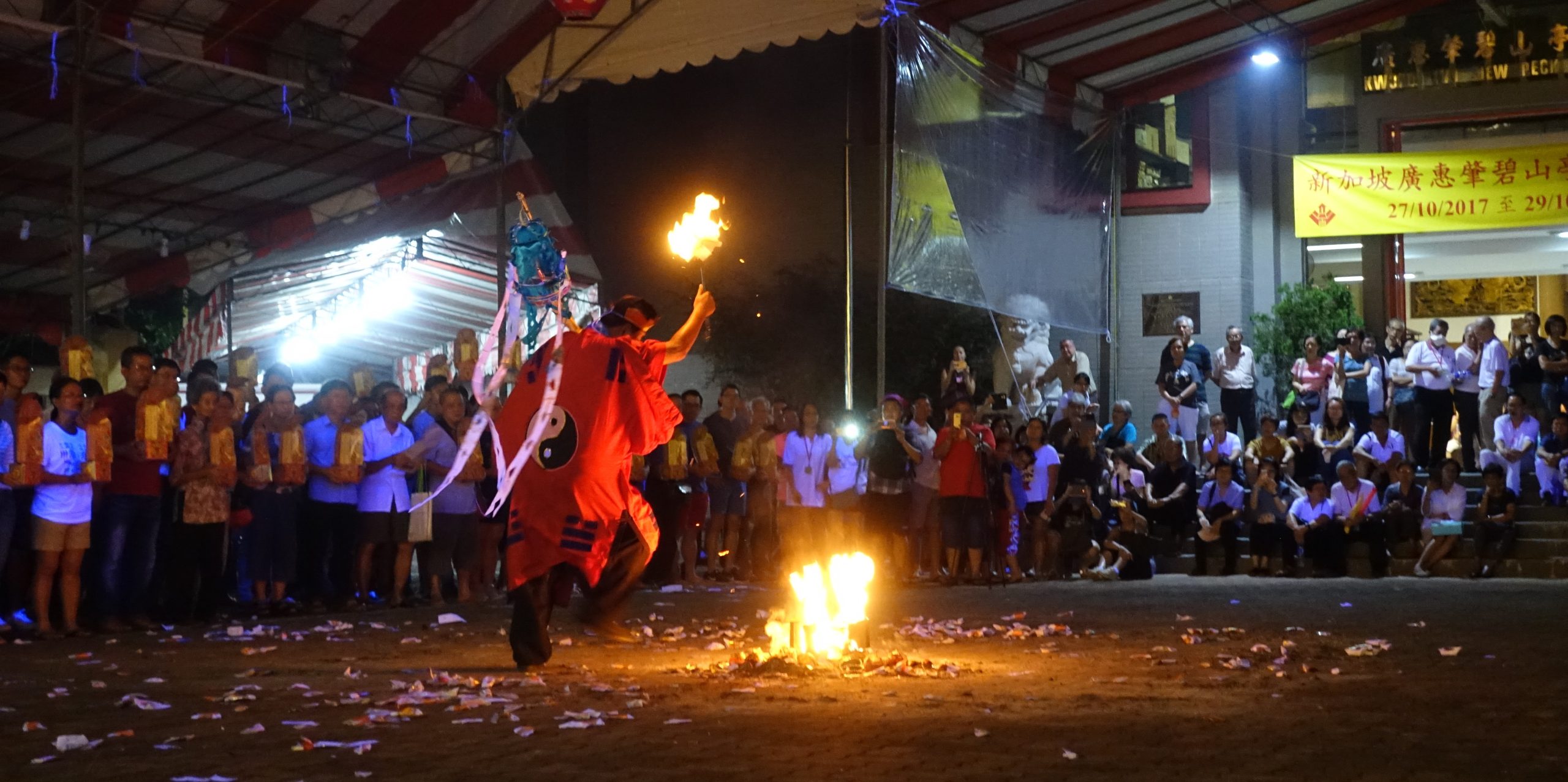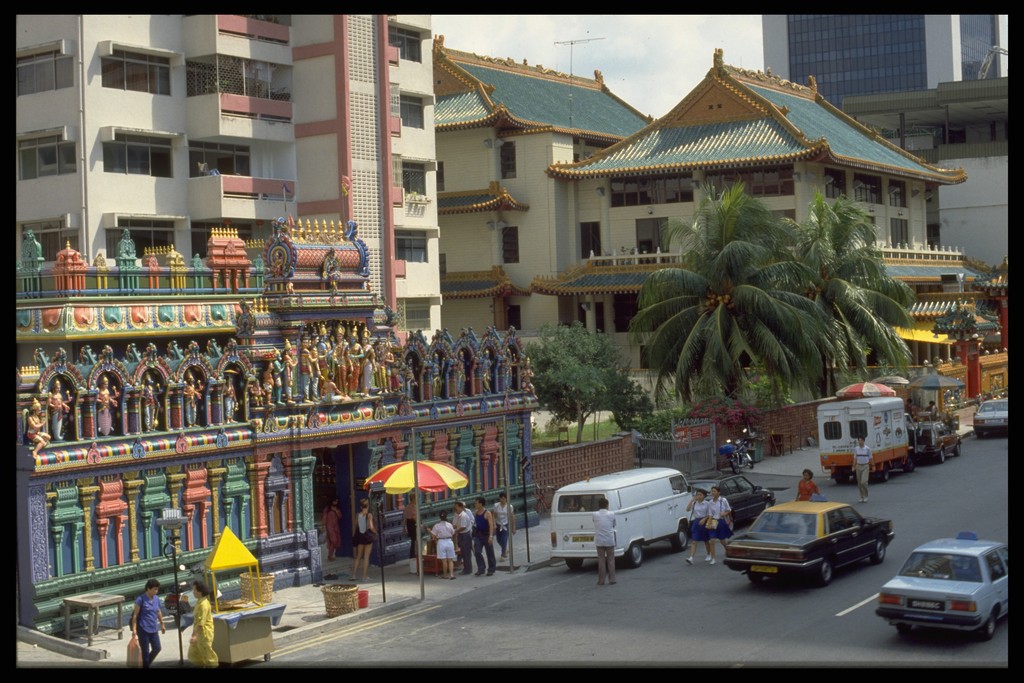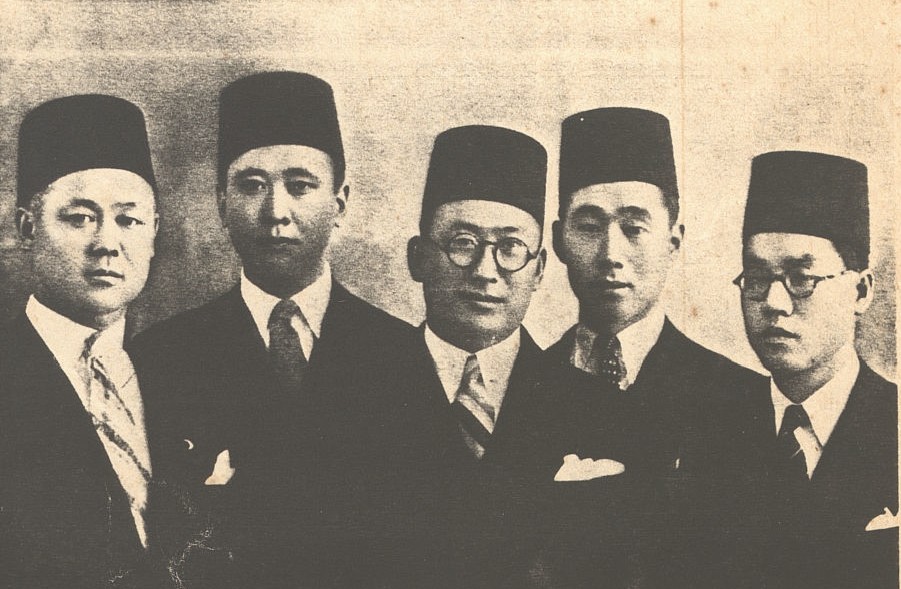Singapore’s traditional Chinese festivals
The traditional festivals of Singapore’s Chinese population can generally be divided into two categories. The first consists of festivals celebrated collectively by the Chinese community, including the most important eight festivals of the lunar year.
Eight Festivals of the Lunar Year
The Singapore Federation of Chinese Clan Associations published the Chinese Customs and Festivals in Singapore in 1989, which specifically mentions the Eight Festivals of the Lunar Year, including the Chinese New Year, Qing Ming Festival, Dragon Boat Festival (Duan Wu Festival), Qixi Festival, Zhong Yuan Festival (Hungry Ghost Festival), Mid-Autumn Festival, Chong Yang Festival (Double Ninth Festival), and Winter Solstice. It notes that “these eight festivals have been selected because of their significance and because they are widely practised by all the dialect groups of the Singapore Chinese community”.1
These traditional Chinese festivals are related to the agricultural cycle of Chinese agrarian society and family rituals. Chinese overseas particularly emphasise festivals related to life and death, as well as expectations for blessings in life and concerns regarding death during the process of settlement and establishment of citizenship.
The Eight Festivals of the Lunar Year are significant both as days for family reunion and as festivals for filial piety towards ancestors. They are also occasions for communities or groups to seek blessings from the gods, ancestors, and forefathers, ensuring prosperity and peace for the groups and the community. Festivals widely valued by the community, such as Chinese New Year, which symbolises the beginning of a new time cycle and the renewal of life, and the Zhong Yuan Festival, which involves redeeming spirits, praying for peace, and warding off misfortune to welcome blessings, typically entail large-scale community celebrations.
Deities’ birthdays
The second category of festivals related to traditional Chinese customs are those celebrating the birthdays of deities. The Almanac alone records 147 deity birthdays.2 The term dan (birthdays) refers to celebrating the birthday or enlightenment day of deities, hence it is considered a yang, or bright, festive occasion.
During deity birthdays, individuals and families express gratitude to deities for their blessings and protection, bringing their divine power back to their homes through food, incense, and representations of the deities. By making offerings and showing gratitude, individuals establish a covenant with the deities, hoping for their protection and blessings in the new time cycle. Individuals or families are selective when determining which deity’s birthday to celebrate. On one hand, it is related to the efficacy of the deity, and on the other hand, it is associated with the community they belong to, and the local social environment they live in.
Temples and community organisations may engage ritual experts to conduct ceremonies for purifying the community and celebrating the birthdays of deities. Festivals with large-scale community celebration events are closely related to the dialect groups and industries within the community. For example, in Singapore, the Hokkien, Teochew, Cantonese, and Hainanese communities all celebrate separately the birth of Mazu, also known as Tianhou. The Lam Ann community celebrates the birth of Guangze zunwang, workers in the construction industry celebrate the birth of Master Lu Ban, and opera troupes celebrate the birth of Emperor Huaguang. Celebrations based on efficacy cross dialect groups, while those based on patronage serve to strengthen community identity.

Deity processions
In 1879, J.D. Vaughan (1825–1891), who had previously served as the Police Magistrate of Singapore in the 1850s, published a book about the customs and habits of the Chinese in the British Straits Settlements.3 As Police Magistrate, Vaughan documented various festivals celebrated by the Chinese in Singapore that he encountered through his work in crowd control, networking, and daily observations. In his book, he categorised the festivals celebrated by the Chinese in Singapore into three types. The first consists of the festivals commonly celebrated by the Chinese community, as mentioned earlier. The second type comprises deity birthdays that are not celebrated by all Chinese, but specific to particular communities or temples. In the book, Vaughan presents a third category of festival celebrations – the annual deity procession from 26th day of the 10th lunar month to 11st lunar month by the Teochew community and the triennial deity procession carried out by the Hokkien community.4
The deity procession, originally a common practice in traditional local societies in China, ceased to be held in Singapore in the early 20th century due to the influence of anti-superstition movements. Despite this, in Singapore, certain community festivals organised in the name of traditional Chinese culture are still observed, hosting celebrations with distinct Singapore characteristics. These festivals include the Nine Emperor Gods Festival, the pilgrimage to Kusu Island, and deity processions that connect different Chinese dialect groups, such as the Fire Dragon Dance at the Mun San Fook Tuck Chee Temple.5There are also ceremonies and rituals executed by Teochew charitable organisations, the Kiew Lee Tong Fengjia Pudu organised by the Henghua communities, and the Grand Universal Salvation Ritual at the Kwong Wai Siew Peck San Theng, which are large-scale celebrations centred around specific dialect groups.6


Chinese festivals are periodic social events within the community. Their function lies in strengthening the bonds among community members, defining community boundaries, and establishing member identities. From regular festivals, we can predict the time and space of their occurrence, as well as the characteristics of the individuals and groups involved in organising and participating in them.
From festivals, we can also understand the ideology of community groups and their worldview within specific times and spaces.7 The celebration or non-celebration of festivals, at the individual and family level, is related to concepts of “efficacy” and “reciprocity”. At the community level, it is associated with identity recognition and regional boundaries. The former is selective, while the latter is a social responsibility, making it normative and non-random.
In summary, traditional Chinese festivals in Singapore can be divided into two categories and understood at three levels: (1) celebrations commonly observed by the Chinese community, (2) those specific to particular groups, especially dialect groups, and (3) locally-created festivities. The three levels of traditional Chinese festivals in Singapore inherit the broader Chinese tradition and the smaller traditions of regional communities, while also localising Chinese cultural traditions.
This is an edited and translated version of 新加坡华人传统节日. Click here to read original piece.
| 1 | Committee on Chinese customs and rites, ed., Huaren lisu jieri shouce, 14. |
| 2 | Martin Palmer, T’ung Shu: the Ancient Chinese Almanac, 9, 13. The name of the T’ung Shu is mostly named after the compiling geomancy house or geomancer. Its contents include divination, numerology, household rituals, seasonal changes, and auspicious and inauspicious timings for various activities, making it a reference book used in many traditional Chinese households. There are many versions of the T’ung Sheng or T’ung Shu, such as the Jubao Lou (T’ung Sheng) published in Guangzhou and the Yongjing Tang (T’ung Sheng) published in Hong Kong. |
| 3 | Jonas Daniel Vaughan, The Manners and Customs of the Chinese of the Straits Settlements. |
| 4 | For information on deity processions, see Choi Chi-cheung, “Chuantong de yanxu yu bianqian: Chaozhou chenghai xian longdu qianmei xiang de youshen” [Continuity and change in tradition: The deity procession in Longdu Qianmei Township, Chenghai County, Chaozhou], in Simiao yu minjian wenhua yantaohui lunwen ji, Vol. 2, edited by Sinology Research Centre (Taiwan: Council for Cultural Affairs, 1995), 671–690; Choi Chi-cheung, “Jieri, shangren yu shanxi difang shehui” [Festivals, Merchants and the Local Societies of Shanxi]. |
| 5 | Koh Keng We, et al., The Nine Emperor Gods Festival in Singapore: Heritage, Culture and Community. |
| 6 | Choi Chi-cheung, “Ershi shiji ‘wenhua zhongguo’ de zai zhanyan: qiaoxiang yu haiwai huaren shehui de shequ jieri” [The reenactment of ‘Cultural China’ in the twentieth century: Community festivals in overseas Chinese societies and hometowns], International Journal of Chinese Studies 14:1 (2022): 1–18. |
| 7 | Donald Getz, Festivals, Special Events and Tourism. |
Bodde, Derk. Festivals in Classical China. Hong Kong: The Chinese University of Hong Kong, 1975. | |
Burkhardt, V.R. Chinese Creeds and Customs. London: Kegan Paul (reprint of 1953–59, SCMP), 2006. | |
Chang, Jianhua. Suishi jieri li de zhongguo [Festivals and seasonal activities of China]. Beijing: Zhonghua Book Company, 2006. | |
Choi, Chi-cheung. “Jieri, minjian zongjiao he xianggang difang shehui” [Festivals, Popular Religions and the Local Societies of Hong Kong]. In Lishi yu wenhua: Xiangang shi yanjiu gongkai jiangzuo wenji, edited by Li Guangxiong, 67–95. Hong Kong: Hong Kong Central Library, 2006. | |
Choi, Chi-cheung. “Jieri, shangren yu shanxi difang shehui” [Festivals, Merchants and the Local Societies of Shanxi]. In Zhongguo jinshang yanjiu, edited by Zhang Zhengming, Sun Liping, et al., 290–311. Beijing: People’s Publishing House, 2006. | |
Committee on Chinese customs and rites, ed. Huaren lisu jieri shouce [Chinese customs and festivals in Singapore]. Singapore: Singapore Federation of Chinese Clan Associations, 1989. | |
Eberhard, Wolfram. Chinese Festivals. Taipei: The Orient Cultural Service, 1972. | |
Getz, Donald. Festivals, Special Events and Tourism. New York: Van Nostrand Reishold, 1991. | |
Koh, Keng We, Lin, Chia Tsun, Koh, Kah Wee Ernest, Lim, Yinru, and Soh, Chuah Meng Esmond. The Nine Emperor Gods Festival in Singapore: Heritage, Culture and Community. 2 Vols. Singapore: Nine Emperor Gods Project, Singapore Chinese Cultural Centre, 2023. | |
Law, Joan and Ward, Barbara. Chinese Festivals in Hong Kong. Hong Kong: MCCM Creations, 2005. | |
Palmer, Martin, ed. T’ung Shu: The Ancient Chinese Almanac. Kuala Lumpur: Vin Press, 1986. | |
Vaughan, Jonas Daniel. The Manners and Customs of the Chinese of the Straits Settlements. Reprint. Kuala Lumpur & Singapore: Oxford University Press, 1971. |










